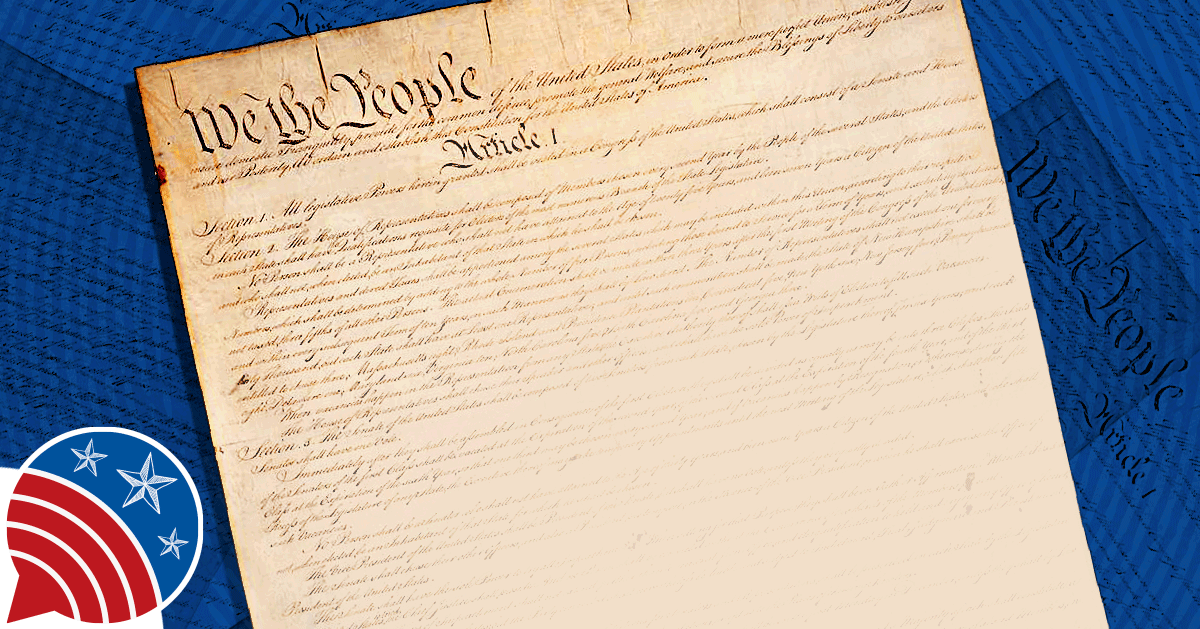
Principles of the Constitution
Take a quick trip back to the founding era to learn about the roots of representative government, limited government, separation of powers, and the many compromises that led to our Constitution. What is the distinction between a republic and a democracy? This exploration lays the groundwork for rich dialogues on government power, the ongoing tension between state and national power, and American democratic values in action, both now and over time.
Podcasts & Videos
The Need for a New Constitution: Principles of the Constitution, Part 1
Instructions
- Watch and listen to the 60-Second Civics video below. If you'd like, you can also read along using the script that appears below the quiz. Or you can turn on the video's subtitles and read while watching the video.
- Take the Daily Civics Quiz. If you get the question wrong, watch the video again or read the script and try again.
Episode Description
Dr. Donna Phillips: Welcome to 60-Seconds Civics, the daily podcast of the Center for Civic Education. I'm Donna Phillips. Today we introduce our series on the principles of the Constitution as part of our Civil Discourse and American Legacy Project. We are joined today by special guest Dr. Lester Brooks, American history professor emeritus from Anne Arundel Community College. Great to have you here today, Dr. Brooks.
Dr. Lester Brooks: Good morning.
Dr. Donna Phillips: Good morning. Great to have you here today.
Dr. Lester Brooks: Thank you.
Dr. Donna Phillips: Dr. Brooks, why was there a need for a new constitution in the 1780s?
Dr. Lester Brooks: The Articles of Confederation, the first constitution, goes into effect in 1781. It laid that foundation that we still wrestle with today who will have the lion's share of power. Will it be the states or a central government? They established a unicameral legislature and increasingly what they found was there were weaknesses. The Congress could not levy taxes. It could declare war, but it couldn't raise an army.
So over time in the 1780s, they began to realize revisions needed to be made. They wanted to make possibly amendments. And so that was the real need for something to be done: revisions.
Dr. Donna Phillips: Thank you so much for joining us today, Dr. Brooks. That's all for today's podcast. 60-Second Civics, where civic education only takes a minute.
Dr. Lester Brooks: Good morning.
Dr. Donna Phillips: Good morning. Great to have you here today.
Dr. Lester Brooks: Thank you.
Dr. Donna Phillips: Dr. Brooks, why was there a need for a new constitution in the 1780s?
Dr. Lester Brooks: The Articles of Confederation, the first constitution, goes into effect in 1781. It laid that foundation that we still wrestle with today who will have the lion's share of power. Will it be the states or a central government? They established a unicameral legislature and increasingly what they found was there were weaknesses. The Congress could not levy taxes. It could declare war, but it couldn't raise an army.
So over time in the 1780s, they began to realize revisions needed to be made. They wanted to make possibly amendments. And so that was the real need for something to be done: revisions.
Dr. Donna Phillips: Thank you so much for joining us today, Dr. Brooks. That's all for today's podcast. 60-Second Civics, where civic education only takes a minute.






